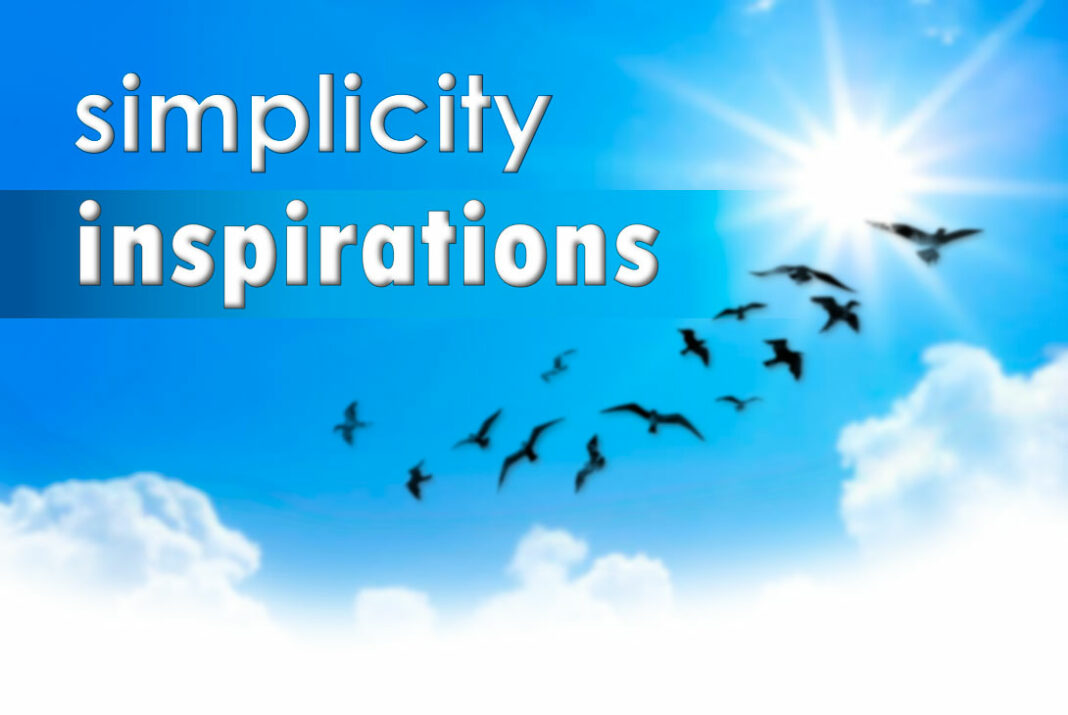Simplicity
Franciscan Formation – Inspirations (Part 5)
“Blessed father Francis (…) with all vigilance and concern (…) was forming his new sons with new instruction, teaching them to walk with steady steps the way of holy poverty and blessed simplicity”[1].
In a general sense, the word “simplicity” indicates the state of being modest, plain or uncomplicated, the quality of being easy to understand or perform, and the personal trait of being humble or sincere[2]. In our religious documents, simplicity is defined as a way of living that is poor, moderate and ordinary; it describes the lifestyle of the Friars Minor, a lifestyle in which we are called to develop, a lifestyle that makes us credible servants of Christ as we carry out the mission and work of evangelization[3].
I was in the friary library, looking through the encyclopedias for a clear, precise and simple definition of this word, and I asked a friar I met there what simplicity meant to him. He replied, “simplicity is when I don’t try to get my own way, but I do what God tells me to do.” I thought he gave me a brilliant definition; he framed simplicity as something that is important in our relationship with God. Therefore, a religious who has simplicity is someone who lives and works as God wants him to.
However, at this point, things get complicated for us. It seems easy to accomplish, but sometimes it takes effort. Sometimes our own inner “wisdom” interferes with simplicity: We may ask “Would it be better to do this or that? Wouldn’t this approach be more reasonable? Should I do it at some other time?” It seems that we begin to discern what God’s will is, but at the same time some selfish part of us prevails in the decisions we make. St. Francis offers us a suggestion: “We must not be wise and prudent according to the flesh, but, instead, we must be simple, humble and pure”; “In fact, there are many religious who, under the pretext of seeing things better than those which the prelate commands, look back, and return to the vomit of their own will”[4]. Simplicity by itself can prove difficult for creative and active people. It is probably more of a nightmare for those who are focused on themselves and admiring their own ideas. Ultimately, simplicity becomes a virtue when we invite the Holy Spirit into our lives and, in His presence; we begin to work habitually to do the good that the Lord wants. Then, taking small steps, we develop the ability to live our lives honestly, without duality between what we say and what we do, with greater attention to what God desires and with a sense of unity with our community, with the poor, the rejected and with all creation[5]. As simple and holy friars, we are called to do ordinary things and perform ordinary ministries, without always trying to have it our way. Indeed, this would seem to be an extraordinary concept in today’s world. May the Lord grant us the spirit of holy simplicity!
Friar Piotr STANISŁAWCZYK
Delegate General for Formation
[1] 1 Celano XI, FF 363, Constitutions Chapter V, Spiritual Introduction, a
[2] Słownik języka polskiego PWN, Prostota, https://sjp.pwn.pl/sjp/prostota;2508934.html.
[3] Constitutions (1 §3, 92, 93 §2, Chapter V, Spiritual Introduction, h).
[4] St. Francis of Assisi, Second Version of the Letter to the Faithful 45 FF 199; Admonitions III, 10 FF 151.
[5] Cf. Leonardo Izzo, OFM Cap., Prostota, in: Leksykon Duchowości Franciszkańskiej, ed. Emil Kumka, OFM Conv., Cracow-Warsaw 2016, pp. 1514-1526.














